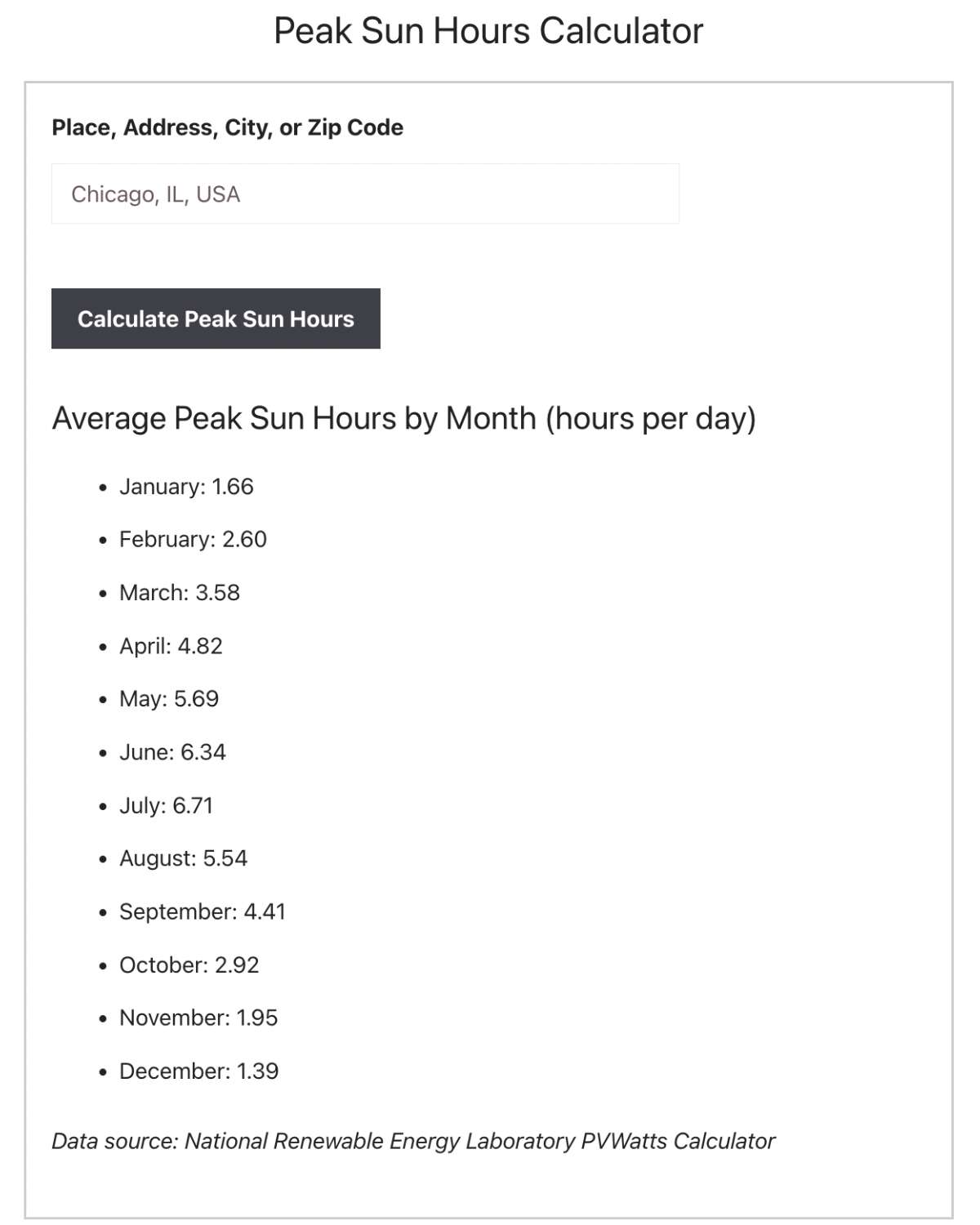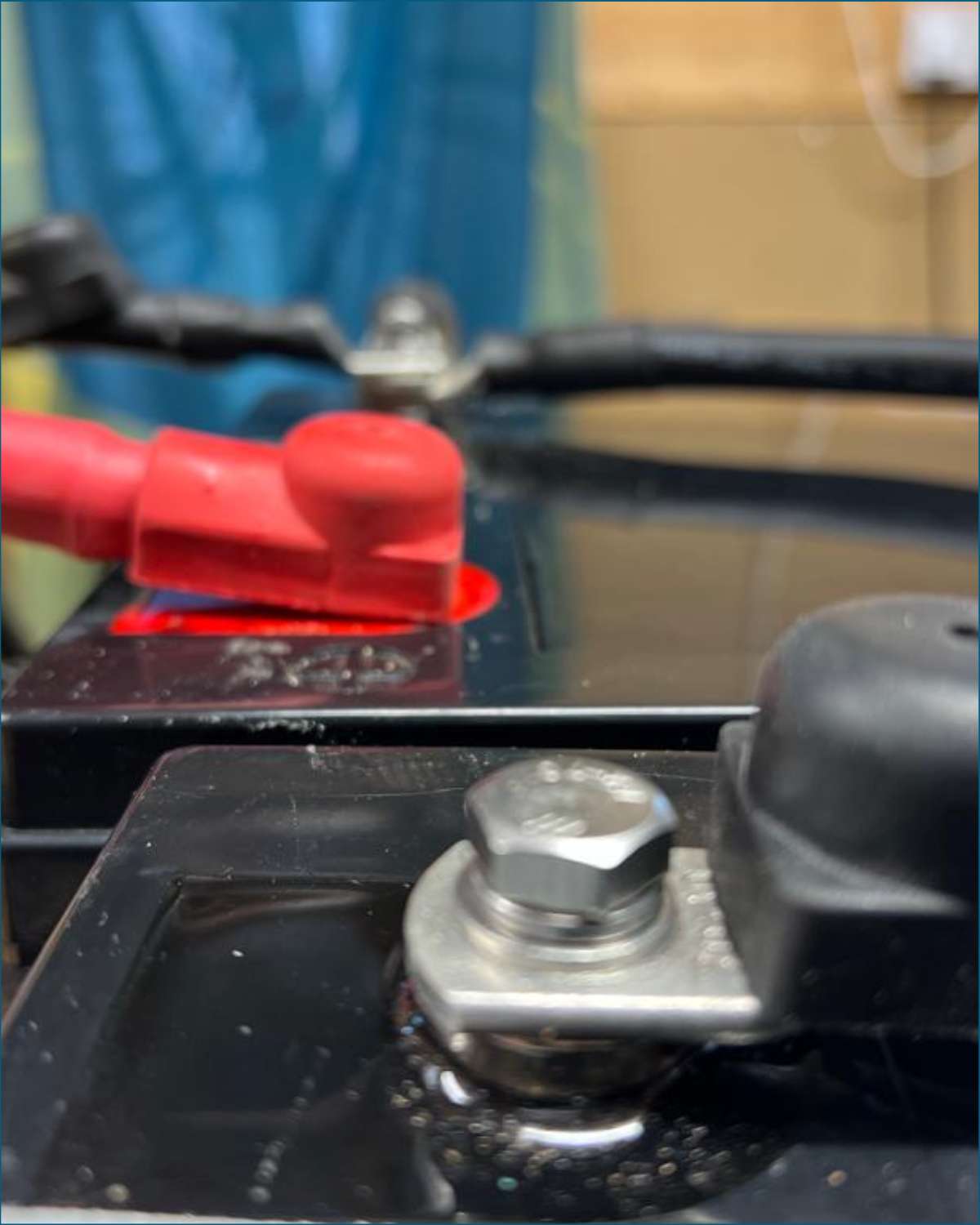Having your RV battery drain quickly can be a big problem.
If you’ve found that your RV battery, which was fully charged, has drained overnight, you’re likely facing a common issue.
In this article, we’ll look at why an RV battery might drain too quickly and provide practical solutions to fix it.
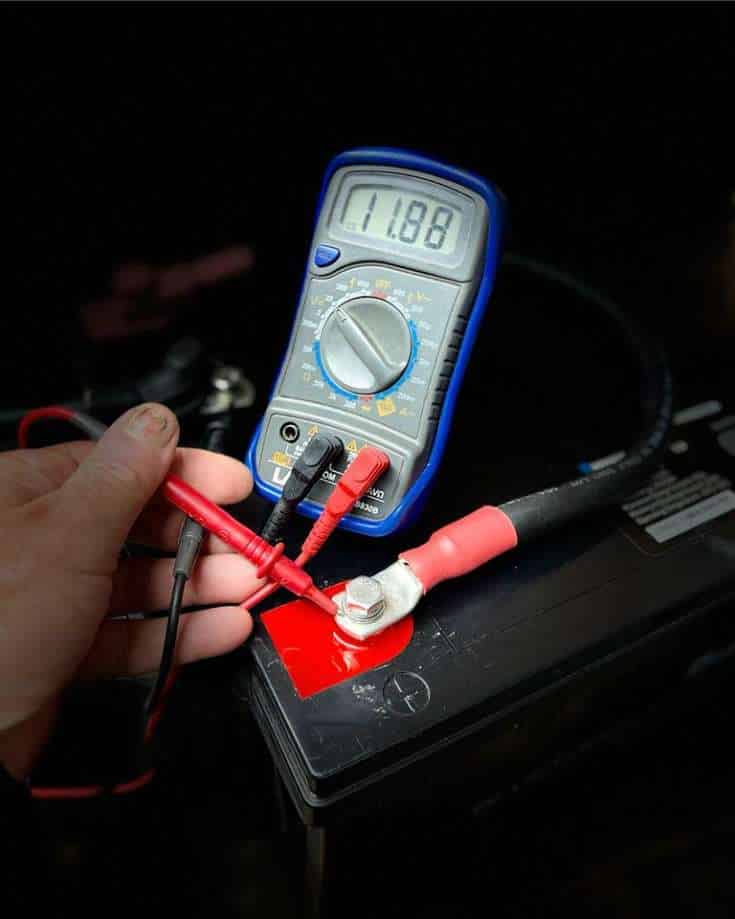
7 Common Reasons Why An RV Battery Drains Fast
1. Leaving Electrical Devices On
A fast-draining RV battery is often caused by accidentally leaving electrical items on.
Even experienced RV owners can do this. It’s easy to forget to turn off things like lights, fans, or entertainment systems.
Even though these devices are small, they can use up a lot of power if left on for a long time.
If you find a device left on, switch it off.
It’s also worth checking that your connections are secured on the battery terminals.
If the battery level is low, get it charged, then monitor its level to help confirm that was the cause of the drained battery.
Make a habit of doing a quick walk-through before leaving your camper or going to bed. Over time, it’ll become second nature.
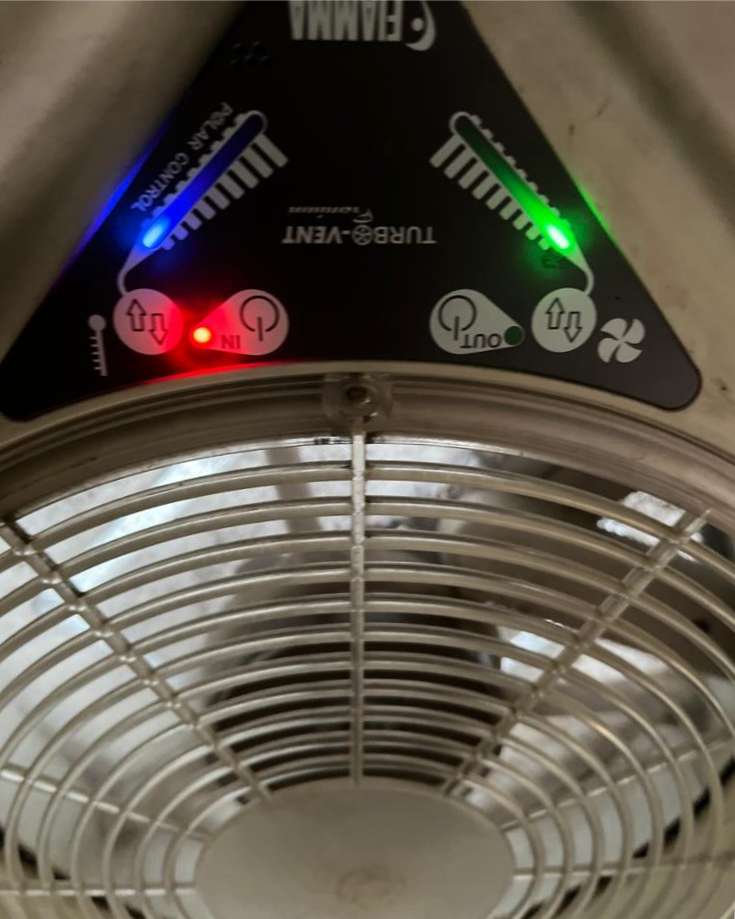
2. Dealing with Power Imbalance: Usage Exceeds Charge
Another common reason RV batteries drain fast is using more power than you’re putting back into them.
This can happen regardless of the size of your battery.
Simply put, if the energy you consume exceeds the energy you recharge, your battery will eventually run flat.
If you’re using a freshly installed electrical system, it’s worth evaluating how much energy you’re using compared to the size of the setup.
Our free online calculator will help you figure that out.
If your current setup’s battery drains quicker than usual, compare your recent electricity use to what’s normal for you.
Also, check if you’ve been charging the batteries as regularly as usual.
If you’re using more power than you can recharge, you have a few choices.
- Increase Charging Frequency. Make a point to charge your battery more often and ensure it gets fully charged each time. For example, if you’ve been boondocking for a few days, leave your RV connected to shore power long enough to recharge the battery fully.
- Reduce Load. Look at ways to decrease your power usage:
- Turn off unnecessary devices,
- Switch to energy-efficient appliances or
- Limit the use of high-power devices.
- Upgrade Your Battery Bank. If your current battery consistently falls short, it could be undersized for your needs. Use our free battery size calculator to reassess your system size. It might be time to upgrade to lithium or add more capacity to your existing system.
- Increase Your Solar Panels. If you rely on solar power and it’s not keeping up with your usage, consider adding more panels. If you don’t have solar panels, consider adding a small solar setup to your camper.
Remember, managing your RV power effectively is all about balance. You must align your power consumption with your ability to recharge your battery.
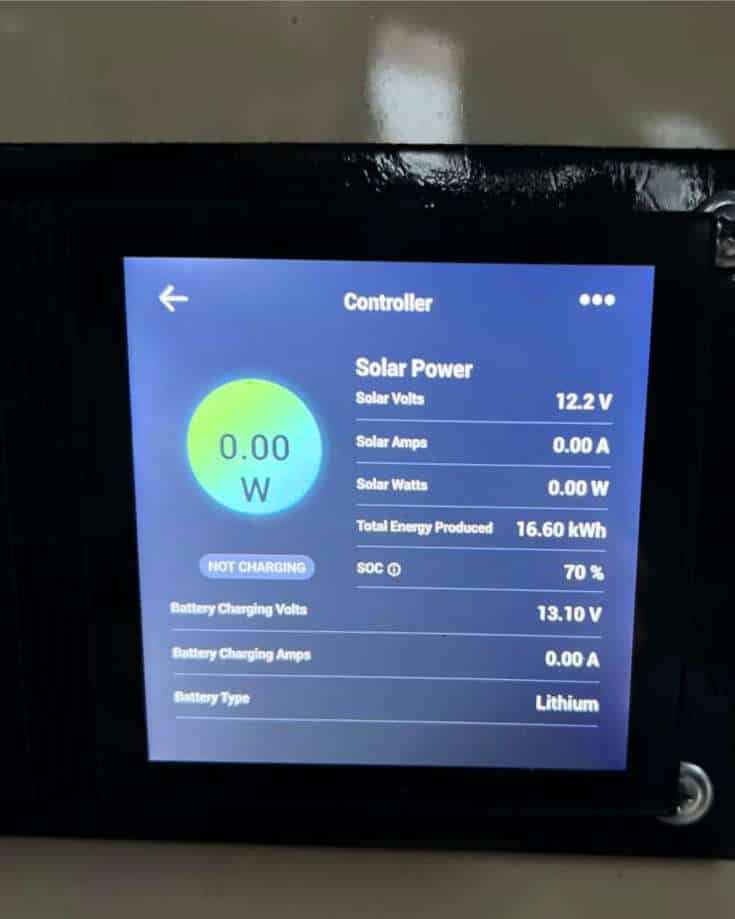
3. Battling Cold Conditions: Maintaining RV Battery Performance
Cold weather can lead to batteries appearing to drain faster than usual.
Extreme temperatures can lead to a significant reduction in battery capacity. That means your battery won’t last as long as it usually does.
To counteract this, consider the following solutions:
- Keep Batteries Warm. Try to maintain a warm environment for your batteries. Adding insulation to the battery compartment can help retain heat and protect the battery from the chill.
- Use Self-Heating Batteries. Some batteries have a built-in heating feature, which is particularly useful in cold climates. These self-heating batteries automatically maintain a suitable temperature, ensuring optimal performance.
4. Parasitic Loads & Electrical Issues
Parasitic loads, or power drains when your RV isn’t in use, can cause unexpected battery drains.
A parasitic load is the energy an electronic device consumes when switched off or in standby mode but still plugged into a power source.
Examples include standby appliances like your TV or inverter or even a small electrical leak or short.
Here’s how you can tackle these issues:
- Identify & Manage Parasitic Loads.Carefully monitor all your devices and systems to identify any potential parasitic loads. Once identified, ensure these are fully turned off when not in use instead of leaving them on standby mode. Unplug non-essential devices to minimize unnecessary power consumption.
- Check for Electrical Issues. Regularly inspect your RV’s electrical system for any signs of shorts or leaks. These problems might not show immediately, but they can slowly drain your battery.
- Regular Maintenance. Regular maintenance of your RV’s electrical system can help prevent issues before they become serious. This includes checking the wiring and connections, ensuring devices operate correctly, and replacing faulty components.
5. Overcharging
It’s difficult to overcharge a battery these days because most modern battery chargers automatically adjust the charging rate as needed.
However, it’s possible if you select the wrong charging profile or battery type on the charger.
You can avoid overcharging your batteries by selecting the correct battery type on your B2B charger, MPPT charge controller, and converter battery charger.
The settings should match the specifications of your particular battery.
6. Over Usage
One of the common reasons your RV battery keeps dying might be over usage.
This is especially true for an AGM lead acid battery, which can rapidly age if discharged more than 50% regularly.
Unlike lithium batteries, deep cycle batteries have a limited depth of discharge.
Regularly check your battery usage.
If you consistently find it discharging over 50%, you’re pushing your battery too hard. This overuse can lead to premature aging of the battery.
Find out which devices use a lot of power.
Using energy-saving appliances and turning off unneeded devices can help you use less power and stop your battery from draining quickly.
Consider upgrading to lithium batteries or increasing your battery bank size with a similar deep cycle battery.
If your usage demands frequent deep discharges, consider switching to lithium batteries. They can handle deeper discharges without the same level of damage seen in lead acid batteries.
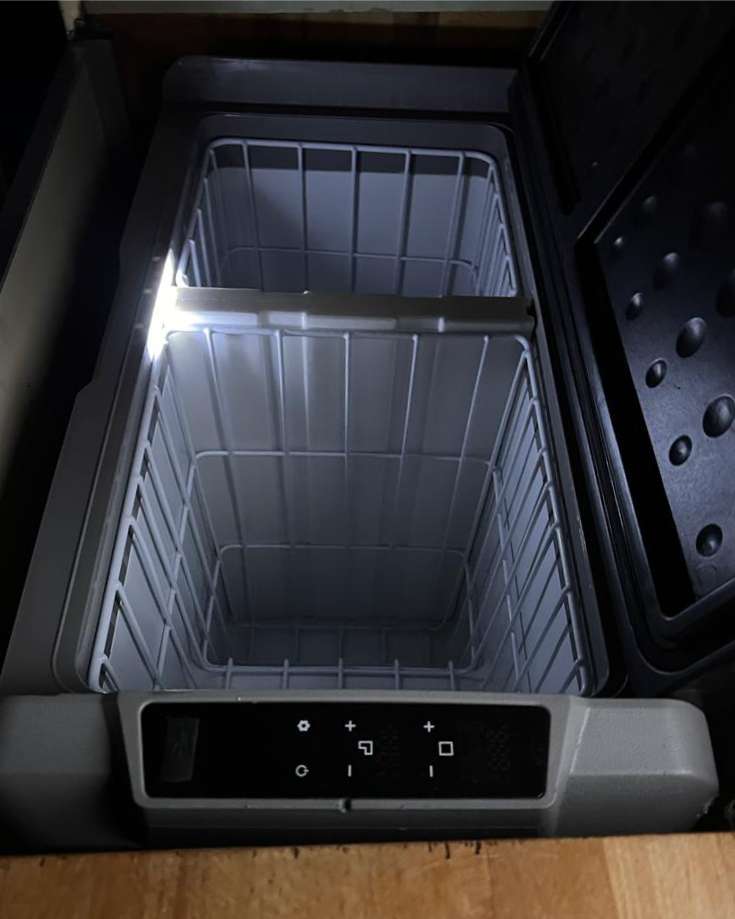
7. Poor Battery Health
The lifespan and performance of an RV house battery are directly affected by its health.
Two primary culprits of poor battery health include:
- Malfunctioning lithium battery management systems (BMS) and
- Batteries are nearing their end of life – a situation more common with AGM batteries than lithium ones.
If you’re using lithium batteries, ensuring the BMS is functioning correctly is crucial.
The BMS helps balance lithium battery cells and manages their charge or discharge cycles.
You need to investigate further if you suspect it’s not operating correctly.
Regularly check the condition of your RV batteries.
If a battery appears fully charged but drains rapidly when you apply any load, it might be failing or approaching its end of life.
This phenomenon is particularly common with AGM batteries.
If the batteries are old or showing signs of complete battery failure, it’s time to consider replacing them.
The Role of Flooded Lead Acid Batteries in RV Battery Drain
If your RV battery is draining quickly and it’s a flooded lead acid type, that could be the issue.
These batteries are old tech and rarely used in RVs today.
If you’re having issues with such batteries, it’s best to replace them.
Try sealed lead acid batteries like AGMs. They’re easier to use because they need less upkeep.
For an even better solution, consider switching to lithium batteries. They work better, last longer, and need less upkeep than lead acid batteries.
Graham Bogie

Graham is a seasoned marine electrical engineer with two decades of experience designing customized electrical systems for plant machinery and converting campers and overland vehicles. His expertise has led him to author the reputable Campervan Electrics Handbook and become the chief designer of the RV Wiring Design Tool. As a knowledgeable figure in the field, his YouTube channel, blog, Facebook group, and newsletter, offering electrical advice and product reviews, reach more than a million users each year.

